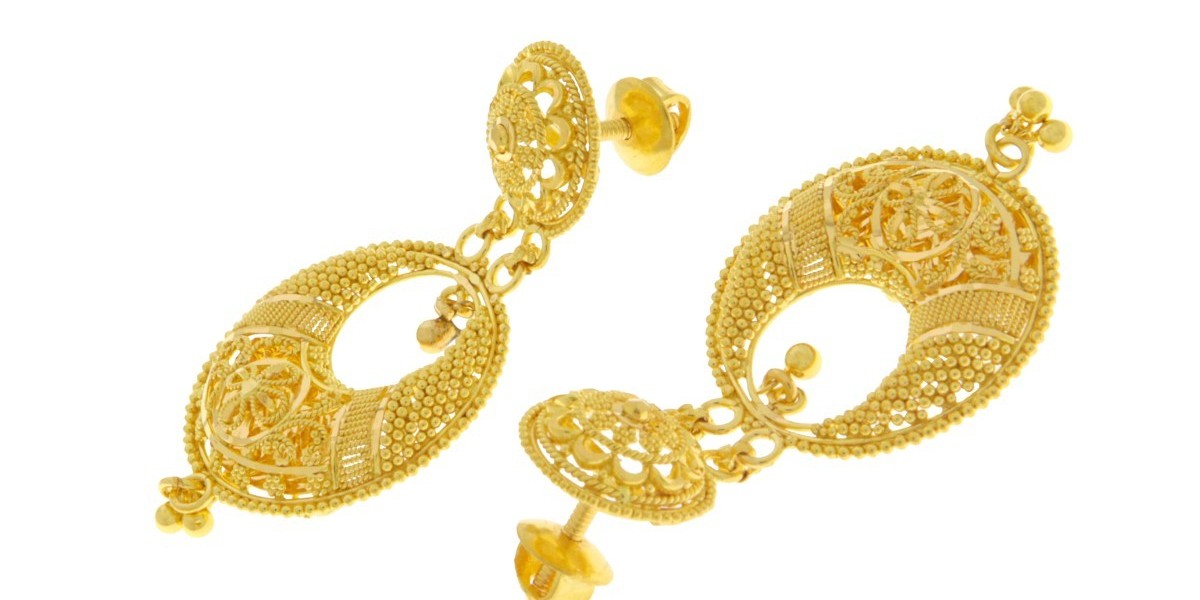Indian jewellery is revered for its exquisite craftsmanship, intricate designs, and cultural significance. For centuries, it has been an integral part of traditional attire, symbolizing not just beauty but also prosperity and heritage. Today, whether you’re seeking classic pieces or contemporary designs, finding Indian jewellery for sale offers endless possibilities for those who appreciate artistry and cultural depth. This guide will help you understand the different types of Indian jewellery, where to find them, and tips on purchasing authentic pieces.
Types of Indian Jewellery for Sale
The rich history of Indian jewellery brings a variety of styles, each unique to the region it originates from. Here are some popular types to consider when shopping for Indian jewellery:
Kundan Jewellery
Kundan jewellery is known for its use of highly refined gold and is often set with gemstones. Originating from the Mughal era, Kundan pieces showcase intricate craftsmanship and luxurious aesthetics, making them popular for weddings and special occasions.
Polki Jewellery
Polki jewellery uses uncut, natural diamonds, adding a raw and authentic sparkle. Like Kundan, Polki originated in Rajasthan and is known for its rich, vintage look. It’s a preferred choice for those who want the appeal of diamonds with a touch of tradition.
Temple Jewellery
With roots in South India, temple jewellery is inspired by idols and deities, often adorned with detailed carvings and religious motifs. Traditionally crafted in gold, temple jewellery features designs inspired by gods and goddesses, making it highly sought after for religious events and cultural celebrations.
Meenakari Jewellery
Meenakari is an ancient Indian technique of enameling, usually on gold. Originating in Rajasthan, Meenakari jewellery is recognized for its vibrant colors and intricate enamel work. This style is popular for its artistic appeal and versatility in both modern and traditional settings.
Jadau Jewellery
Jadau jewellery is crafted by embedding precious stones such as rubies, emeralds, and diamonds into gold without the use of adhesives. This style, popular in both Rajasthan jewellery online and Gujarat, is known for its opulence and is often worn during weddings and festivals.
Beaded Jewellery
Traditional Indian beaded jewellery features various beads made from materials like glass, pearls, and gemstones. Known for their versatility and color, beaded pieces are popular for both formal and casual wear, often incorporating intricate patterns and bold designs.
Where to Find Indian Jewellery for Sale
Finding authentic Indian jewellery can be a challenge, especially for those looking for quality pieces that reflect traditional craftsmanship. Here are some trusted places to shop:
Local Indian Jewellery Stores
Indian jewellery stores often carry a wide selection of authentic pieces. Many of these stores also offer customizations to meet specific tastes or cultural preferences. Visiting a local shop allows you to examine the quality, craftsmanship, and intricate details of each piece.
Online Marketplaces for Indian Jewellery
Online marketplaces have made it easier to find Indian jewellery for sale from anywhere in the world. Websites like Tanishq, CaratLane, and Bluestone offer a wide range of traditional and modern Indian jewellery. Many of these sites offer certifications, free shipping, and return policies, making online shopping more convenient and secure.
Social Media Platforms and Artisan Shops
Social media platforms like Instagram and Facebook have become popular for small jewellers and artisans to showcase their unique pieces. Many independent designers sell handmade Indian jewellery through these platforms, offering custom, one-of-a-kind pieces. Just ensure the seller is reputable by checking reviews and customer feedback.
Festivals and Trade Shows
Festivals and trade shows dedicated to Indian culture often feature jewellery stalls with pieces crafted by skilled artisans. These events provide an opportunity to see and purchase unique, authentic designs, often at competitive prices. Some events are held internationally, catering to Indian jewellery enthusiasts around the world.
Indian Jewellery Exhibitions
Jewellery exhibitions in major cities frequently feature Indian jewellery collections from renowned designers and local artisans alike. Exhibitions offer a chance to explore a variety of styles and get a feel for current trends and craftsmanship quality. This can be an excellent option for those looking for exclusive and limited-edition pieces.
Tips for Buying Authentic Indian Jewellery
When purchasing Indian jewellery, it’s essential to ensure authenticity, especially when buying gold or gemstone pieces. Here are some tips to help you make a confident purchase:
Check for Hallmarks and Certifications
Genuine gold jewellery should be hallmarked by an authorized body, which certifies the purity and quality of the gold. Look for certification from reputable jewellers and ask for documentation that details the metal and gemstone quality.
Understand the Purity of Gold
Traditional Indian jewellery is often crafted in high-purity gold, like 22K or 24K. Be clear on the gold karat of the piece, as this can significantly affect the price. If you’re buying gold-plated or 18K gold jewellery, ensure it aligns with your expectations and budget.
Know Your Gemstones
Gemstones like rubies, emeralds, and diamonds are commonly used in Indian jewellery. Be sure to ask about the quality and origin of the stones used, as natural, untreated stones are usually more valuable than synthetic or treated ones. A jeweller’s certificate or gemstone grading report can offer peace of mind.
Inquire About Maintenance and Care
Different types of Indian jewellery require specific care. For instance, Meenakari and Kundan pieces should be kept away from moisture to maintain their luster. Ask the jeweller for care instructions to ensure your jewellery remains in excellent condition over time.
Compare Prices Across Jewellers
Prices for Indian jewellery can vary significantly based on factors like craftsmanship, gold purity, and gemstone quality. It’s a good idea to compare prices from multiple sellers and online stores to find the best value without sacrificing quality.
Trends in Indian Jewellery for Sale
Indian jewellery trends continue to evolve, blending traditional designs with contemporary elements. Here are some popular trends:
Layered Necklaces: Multi-layered necklaces, often worn for weddings or festivals, feature a mix of gold, Kundan, and Polki designs. These versatile pieces add elegance to any outfit.
Contemporary Minimalism: Modern Indian jewellery now includes minimalist pieces, which incorporate simple gold bands or small pendants. This style is ideal for everyday wear and those seeking subtle sophistication.
Statement Earrings: Bold and large earrings, such as Jhumkas and Chandbalis, are a prominent trend. Statement earrings in gold or with intricate Kundan work can elevate any look with a traditional touch.
Personalized Pieces: Customized jewellery with engraved names, initials, or symbols is growing in popularity. This trend combines personal significance with a traditional look, making it ideal for gifting.
Choker Necklaces: Chokers have made a comeback, often with traditional Kundan or Polki detailing. These are perfect for adding a dramatic touch to bridal or festive outfits.
Why Invest in Indian Jewellery?
Indian jewellery holds immense cultural and emotional value, making it more than just a fashion statement. Each piece tells a story of heritage and craftsmanship. Here are some indian jewellery for sale reasons why Indian jewellery is a valuable investment:
Long-Lasting Value: High-purity gold and gemstones hold their value well, making Indian jewellery an investment that can be passed down through generations.
Symbolic Meaning: Indian jewellery is often associated with significant life events, such as weddings and religious festivals, making it a meaningful purchase that celebrates tradition.
Cultural Heritage: Buying Indian jewellery is a way to connect with cultural heritage. Each region in India has its unique style, offering a rich tapestry of designs and craftsmanship that preserve Indian artistry.
Versatile and Elegant: Indian jewellery can be both traditional and modern, allowing you to accessorize a range of outfits. This versatility makes it a prized addition to any jewellery collection.
Final Thoughts on Indian Jewellery for Sale
Whether you're looking for an heirloom piece or something to wear daily, Indian jewellery offers an unparalleled blend of beauty, cultural depth, and artistic craftsmanship. By knowing where to shop and understanding what to look for in quality, you can find exquisite pieces that align with your budget and personal style. With Indian jewellery for sale from a range of trusted sources, there has never been a better time to explore and celebrate this timeless art form.






